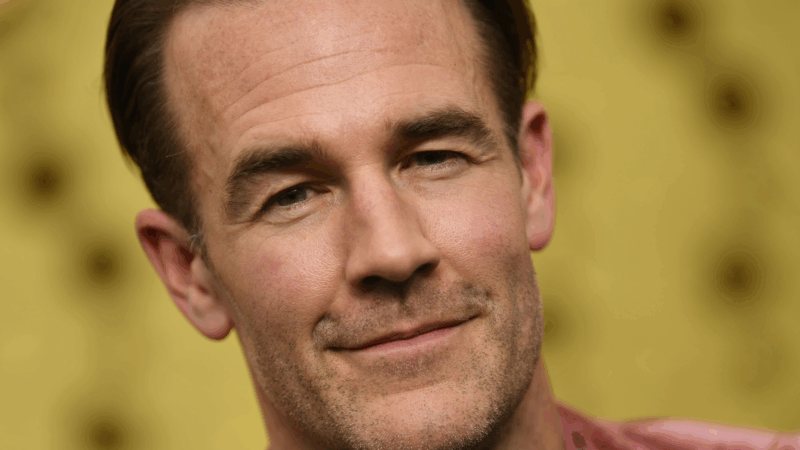Critics warn DOJ is being politicized despite vows to end its purported weaponization
At her confirmation hearing in January to become attorney general, Pam Bondi vowed to fight violent crime and restore confidence and integrity to the Justice Department.
“The partisanship, the weaponization will be gone,” she told lawmakers. “America will have one tier of justice for all.”
Like President Trump, Bondi argues that the Justice Department was politicized under the Biden administration to target Trump and conservatives more broadly, and they point to the prosecutions of Trump himself as prime examples.
But more than 100 days into Trump’s second term, critics argue that despite Bondi’s talk of ending the purported weaponization of the department, she’s weaponizing it herself.
Bondi’s supporters, however, brush aside such talk. John Lauro, who served as Trump’s defense attorney in some of his criminal cases, says Bondi is tackling weaponization head-on.
“What the present administration has done, and Attorney General Bondi has made it very clear, is a retrenchment from that weaponization,” Lauro said at a recent event with the conservative Federalist Society.
“So we now see no political prosecutions, no sham indictments, no fake grand jury proceedings, but instead, a way of looking at the Department of Justice in terms of restoration and ensuring that the rule of law will be carried out going forward.”
But critics say something very different is afoot.
“I think what’s happening in the Department of Justice right now is that it’s being transformed into Donald Trump’s personal law firm,” said Liz Oyer, the former pardon attorney at the department.
“The attorney general has made it clear that directions are coming from the very top, from the president, and she is there to do his bidding,” Oyer said. “That means pursuing enemies of the president. That means doing favors for friends of the president. The Department of Justice is essentially whatever the president wants it to be right now.”
Oyer was fired in March after she declined to restore gun rights to actor Mel Gibson, who is a prominent supporter of Trump. Oyer says she had public safety concerns due to Gibson’s domestic violence conviction.
Ultimately, Bondi gave Gibson his gun rights back.
The example points to broader concerns for Oyer about what is driving decision-making for Bondi and her leadership team.
“Career professionals, experts in their field, are being marginalized, and decisions are being driven by political considerations, uninformed by the knowledge and expertise of the career staff,” Oyer said.
Bondi and her top lieutenants previously served as Trump’s personal defense attorneys. Under their leadership, the department has fired prosecutors who worked Capitol riot cases or investigated Trump, pushed out senior officials at the FBI and dropped cases against the president’s political allies.
A former senior Justice Department official from Trump’s first term said Bondi and her team of political appointees came in “with the assumption that they’re in a hostile environment.”
“I think they’d be better off if they saw themselves less at war with career folks in the building. Some folks’ conduct can be questioned, but most career lawyers are trying to serve the political leadership,” said the former senior official, who spoke on condition of anonymity in order to speak candidly.
“I understand the concerns and share in some of it, but they don’t seem to be taking full advantage of the career attorneys, and an interesting question is whether that’s sustainable.”
The former official also said the White House is directing the positions that the department takes in court and appears to be shaping the language it submits in legal filings. Both the White House and the department “would be better off if there was more pushback” from the Justice Department on that.
The Justice Department declined to comment for this story.
One example that critics point to of politics allegedly driving department decisions is the corruption case against New York City Mayor Eric Adams. In that instance, the department leadership directed prosecutors to dismiss the Adams case, suggesting that it interfered in the mayor’s ability to help Trump with immigration enforcement.
Nearly a dozen prosecutors resigned in protest.
One of them was Ryan Crosswell. He worked in the Public Integrity Section in Washington, D.C. After prosecutors in New York refused to drop the case, the then-acting deputy attorney general gave lawyers in Crosswell’s office one hour to find two attorneys among them to sign the court papers dismissing the Adams case.
“There were essentially three options — sign it, resign or be fired — is how we looked at it,” Crosswell said.
In the end, one attorney signed it, Crosswell said, to save the Public Integrity Section and its mission — prosecuting corruption, including criminal conflicts of interest and people who profit from their government positions.
“It’s an incredibly important section that was created in the aftermath of Watergate,” he said. “Corruption can affect every aspect in the community, state, country, and the idea to lose something like that was a lot.”
Days later, Crosswell resigned.
He had been a federal prosecutor for around a decade — over four administrations. He disputes that the department ever was weaponized, and he finds the current leadership’s talk of ending it ironic.
“Even if you did think that it was weaponized, then the correction to weaponizing the department is not to do it yourself,” he said.
It’s normal for enforcement and policy priorities to shift from administration to administration, particularly with a change in party. What’s going on now, Crosswell said, is something altogether very different.
“Will the Justice Department that will drop charges against people who acquiesce to its demands bring charges against those who won’t?” he said. “That’s definitely a concern because there’s not much of a distinction.”
Transcript:
STEVE INSKEEP, HOST:
Attorney General Pam Bondi says she’s ending what she called the weaponization of the Justice Department during the Biden administration. What is the case that she’s weaponizing it herself? NPR justice correspondent Ryan Lucas looked into some of the early acts of the Trump Justice Department.
RYAN LUCAS, BYLINE: At her confirmation hearing in January, Attorney General Pam Bondi vowed to fight violent crime and to restore confidence and integrity to the Justice Department.
(SOUNDBITE OF ARCHIVED RECORDING)
PAM BONDI: The partisanship, the weaponization, will be gone. America will have one tier of justice for all.
LUCAS: Like President Trump, Bondi argues that the department was politicized under the Biden administration to target Trump and conservatives more broadly, and they point to the prosecutions of Trump himself as prime examples. John Lauro, who served as Trump’s defense attorney in some of those cases, says Bondi is tackling weaponization head-on. Here’s Lauro speaking at a recent event with the conservative Federalist Society.
(SOUNDBITE OF ARCHIVED RECORDING)
JOHN LAURO: So we now see no political prosecutions, no sham indictments, no fake grand jury proceedings, but instead a way of looking at the Department of Justice in terms of restoration and ensuring that the rule of law will be carried out going forward.
LUCAS: Liz Oyer is the former pardon attorney at the Justice Department.
LIZ OYER: I think what’s happening in the Department of Justice right now is that it’s being transformed into Donald Trump’s personal law firm.
LUCAS: Oyer and other critics say that, in fact, Bondi is taking actions to politicize the department herself.
OYER: The attorney general has made it clear that directions are coming from the very top – from the president – and she is there to do his bidding. That means pursuing enemies of the president. That means doing favors for friends of the president. The Department of Justice is essentially whatever the president wants it to be right now.
LUCAS: Oyer was fired in March after she declined to restore gun rights to the actor Mel Gibson, who is a prominent supporter of President Trump. Oyer says she had public safety concerns due to Gibson’s domestic violence conviction. Ultimately, Bondi gave Gibson his gun rights back. But it’s an example of concerns that Oyer has about what is driving decision-making for the new department leadership.
OYER: Career professionals, experts in their field, are being marginalized. And decisions are being driven by political considerations, uninformed by the knowledge and expertise of the career staff.
LUCAS: Bondi and her top lieutenants previously served as Trump’s personal defense attorneys. Under their leadership, the department has fired prosecutors who worked Capitol riot cases or investigated Trump, pushed out senior officials at the FBI and dropped cases against the president’s political allies. One example critics point to is the corruption case against New York City Mayor Eric Adams. In that instance, the department leadership directed prosecutors to dismiss the Adams prosecution, suggesting that it interfered in the mayor’s ability to help Trump with immigration enforcement. Nearly a dozen prosecutors resigned in protest. One of them was Ryan Crosswell. He worked in the public integrity section in Washington. After prosecutors in New York refused to drop the case, the then-acting deputy attorney general gave lawyers in Crosswell’s office one hour to find two attorneys among them to sign the court papers dismissing the Adams case.
RYAN CROSSWELL: We felt we had three options, and I don’t think I’m just speaking for myself. One was to resign en masse, two was to be fired, or three was that someone would sign the motion.
LUCAS: In the end, one attorney agreed to sign it, Crosswell says, to save the Public Integrity Section and its mission – prosecuting corruption, including criminal conflicts of interest and people that profit from their government positions.
CROSSWELL: I think that losing the Public Integrity Section would be devastating because the work’s so important. It’s been serving the public for nearly 50 years.
LUCAS: Days later, Crosswell resigned. He had been a federal prosecutor for around a decade. He disputes that the department ever was weaponized, and he finds the current leadership’s talk of ending it ironic.
CROSSWELL: And even if you did think that it was weaponized, then the correction to weaponizing the department is not to do it yourself.
LUCAS: Certainly, enforcement and policy priorities shift from administration to administration. What’s going on now, Crosswell says, is something altogether very different.
Ryan Lucas, NPR News, Washington.
‘Dawson’s Creek’ star James Van Der Beek has died at 48
Van Der Beek played Dawson Leery on the hit show Dawson's Creek. He announced his colon cancer diagnosis in 2024.
A Jan. 6 rioter pardoned by Trump was convicted of sexually abusing children
A handyman from Florida who received a pardon from President Trump for storming the U.S. Capitol on Jan. 6, 2021, was convicted on state charges of child sex abuse and exposing himself to a child.
A country-pop newcomer’s debut is your reinvention album of 2026
August Ponthier's Everywhere Isn't Texas is as much a fully realized introduction as a complete revival. Its an existential debut that asks: How, exactly, does the artist fit in here?
U.S. unexpectedly adds 130,000 jobs in January after a weak 2025
U.S. employers added 130,000 jobs in January as the unemployment rate dipped to 4.3% from 4.4% in December. Annual revisions show that job growth last year was far weaker than initially reported.
Greetings from Mexico City’s iconic boulevard, where a dog on a bike steals the show
Every week, more than 100,000 people ride bikes, skates and rollerblades past some of the best-known parts of Mexico's capital. And sometimes their dogs join them too.
February may be short on days — but it boasts a long list of new books
The shortest month of the year is packed with highly anticipated new releases, including books from Michael Pollan, Tayari Jones and the late Nobel laureate Mario Vargas Llosa.






